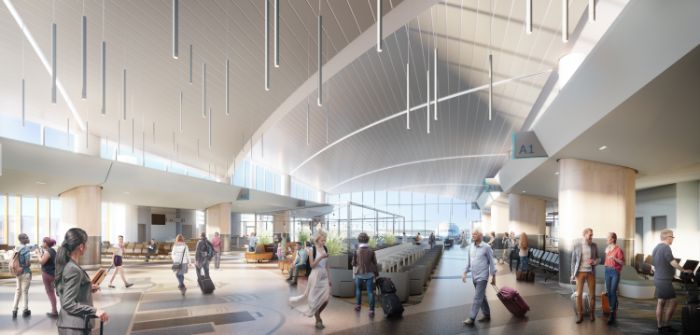The Gerald R Ford International Airport Authority Board has announced Project Elevate, a three-development expansion of Ford Airport in Grand Rapids, Michigan.
The first stage of the expansion will involve a US$90m extension of Concourse A, adding eight gates and other new amenities, with construction scheduled to begin in spring 2020. The project is expected to generate more than 125 construction jobs and more than 300 permanent positions.
Expansion of the terminal apron to support this state-of-the-art concourse is already underway, thanks to more than US$14.4m in federal and state commitments from the Federal Aviation Administration and the Michigan Department of Transportation. Airport leadership is currently seeking federal approval for the second development of Project Elevate, which proposes to add a federal inspection station (FIS) capable of screening international commercial passenger flights.
The third development will be to relocate the current air traffic control tower, to make way for diverse terminal-area developments such as additional tenant hangars and more parking, among others. No local taxpayer dollars will be used to finance Project Elevate, which will be paid for with a combination of federal and state grants, municipal bonds issued by the airport and user fees.
“The airport is the first impression many people see when they arrive in West Michigan – and the last view they will remember as they leave,” said Airport Authority Board chair Dan Koorndyk. “Project Elevate will change the skyline of the airport. It sets the stage for not only the airport’s growth, but our region’s as a whole.
“Our airfield still has plenty of capacity, but our terminal has a number of choke points. Project Elevate will address these issues,” he added.
Project Elevate will build on the success of the US$47m Gateway Transformation project, which began in 2014 and will wrap up spring 2020. The project raised more than US$17m from the business and philanthropic communities in West Michigan to support a complete remodeling of the terminal. The first phase created a centralized security checkpoint, a new post-security marketplace, pre- and post-security nursing rooms, three new post-security business centers, a refreshed pre-security business center, and the new President Gerald R Ford Tribute room in the Grand Hall.
The second phase, which is currently underway, focuses on ticketing, baggage screening, baggage claim, and other front-of-house areas. A key feature of the second phase includes relocating TSA baggage screening equipment from the airline queuing areas and adding restrooms, dining and beverage options near the baggage claim.
Gerald R Ford International, the second-busiest airport in Michigan, has experienced double-digit passenger growth for the past 19 months, posting an increase of 16% to more than 3.26 million passengers for 2018.

